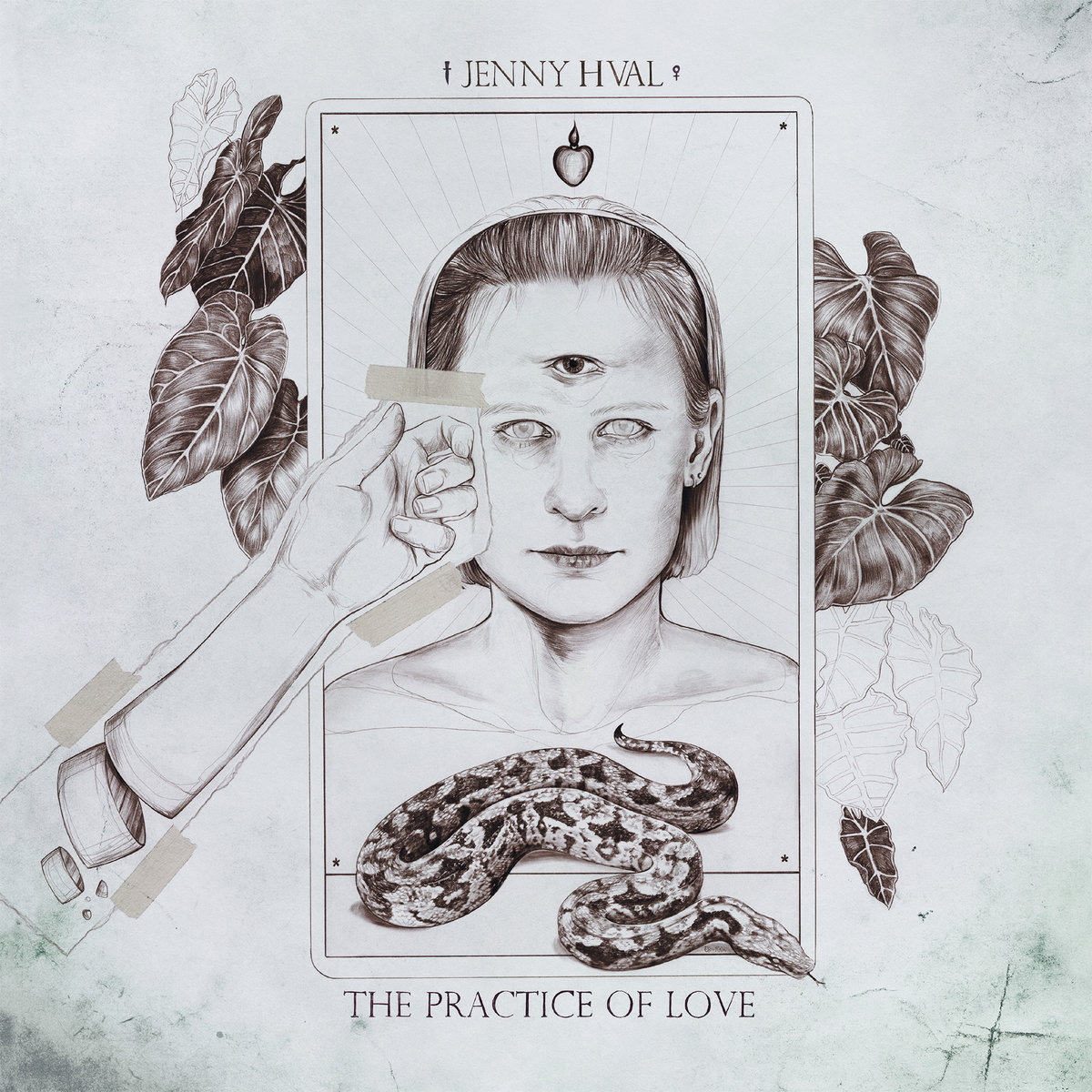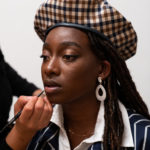Like listening to a recorded therapy session with the patient being an intelligent, philosophical schizophrenic. Jenny Hval’s enthralling new album The Practice of Love is an intellectual study that questions one’s purpose in the world and how humans connect with each other, covering topics from: birth, to procreation problems, to growing up, our relationship with nature and self-destruction. Expressed from the mind of an inquisitive individual, whom sounds like they have many chaotic voices in their head.
This effect is conveyed because the Norwegian musician is joined vocally by other intellects: Laura Jean (Australian folk artist), Vivian Wang (an ex-member of Singapore art rock group The Observatory) and Félicia Atkinson (a French abstract and multidisciplinary composer) who whisper beside her like physical forms of good and bad conscience. Jenny Hval’s lyrics showcase a world that’s both realistic and imaginary, inspired by high brow poems, films (including the Austrian drama movie The Practice of Love from 1985) and literature (all the way to Lewis Caroll’s Alice In Wonderland). It’s a vision that’s rather euphoric though – through Hval’s use of dream pop-meets-trance environment.
Jenny Hval invites us to re-analyze our environment straight from the off. Collaborator Vivian Wang says in a philosophy school manner: “Look at these trees. Look at this grass. Look at those clouds. Look at them now. Take a closer look. Study the raindrops on the leaves. Study this and ask yourself: Where is God.” To avoid it coming off as a dull lecture, Hval gives the nature lesson a soothing synth-pop loop akin to The Knife, shuffling percussion and a Scandinavian aura.
There’s a similar mindset on the title track ‘The Practice of Love’, however this time she is studying the meaning of love and motherhood and the music is very much pushed to the background to focus on two simultaneous interviews that are overlaid over each other. Yes, it can be experimental & meditative in an art installation kind of way, and perplexing and headache-inducing in equal measure. However, the song is multi-dimensional in this way, giving listeners the choice to focus on either interview in repeated listens. The most intriguing one is about aging childless women. The stigma surrounding it and the insecurity it brings. Laura Jean Englert confesses: “Becoming someone who’s in their late 30s that doesn’t have a child, it’s like, I have to accept that I’m part of this human ecosystem, um, but I’m not the princess and I’m not the main character?
The subject of infertility is also covered in the dark electronica of ‘Accident’. “I wonder how I’ve managed to avoid conceiving. You know, by accident. So many years. So little fruit.” This disability influences some self-loathing too: “I was just an accident, even to myself.” A gorgeous track that sucks you in and refuses to let you go, with its mystical synth, satisfying key-changes, compatriot Aurora-like chants, thumping beat and forlorn saxophone from fellow Norwegian Esper Reinertsen. It’s as if a ritual is being performed. Laura Jean’s vocals give this track like many others on the record, the split-personality moral compass.
Although Jenny Hval’s lyrics on The Practice of Love never fail to be interesting, what is also fascinating is the nod to 1990’s genres in trip hop and trance. ‘High Alice’ – which imagines the titular character from Alice in Wonderland entering a rabbit hole discovering “centuries of art” – is reminiscent of Madonna’s ‘Justify My Love’. This is due to the seductive whispering, trip-hop beats and lyrics that could be seen as risque: “Let her sketch out her rabbit hole. Her pleasure dome”/ “With my hand on my skin. With my hand between my thighs.” It contains a nice repeated all-too-true lyric: “We all want something better”. Blending imagination with real life truths.
The trance inspiration is most noticeable in ‘Thumbsucker’ and ‘Six Red Cannas’. It bubbles under the surface of saxophone and vocal melodies on the former but ‘Six Red Cannas’ is full blown trance, the vocals and music together make it sound like Charlotte Gainsbourg at a rave, dancing with Grimes. The swirling and phasing effect that accompany the lyrics about time travelling to different eras works very well, almost like a Doctor Who title sequence. Hval travels to a time when Georgia O’ Keefe created particular works of art, when Joni Mitchell wrote Amelia and all the way back to the beginning of our species: “We used to be all underwater.”
Jenny Hval’s The Practice of Love ‘s music and lyrics are undeniably thought-provoking and can easily take one’s mind to unknown subconscious places. Perhaps like undergoing psychiatric therapy. Session over. Your time is up.




